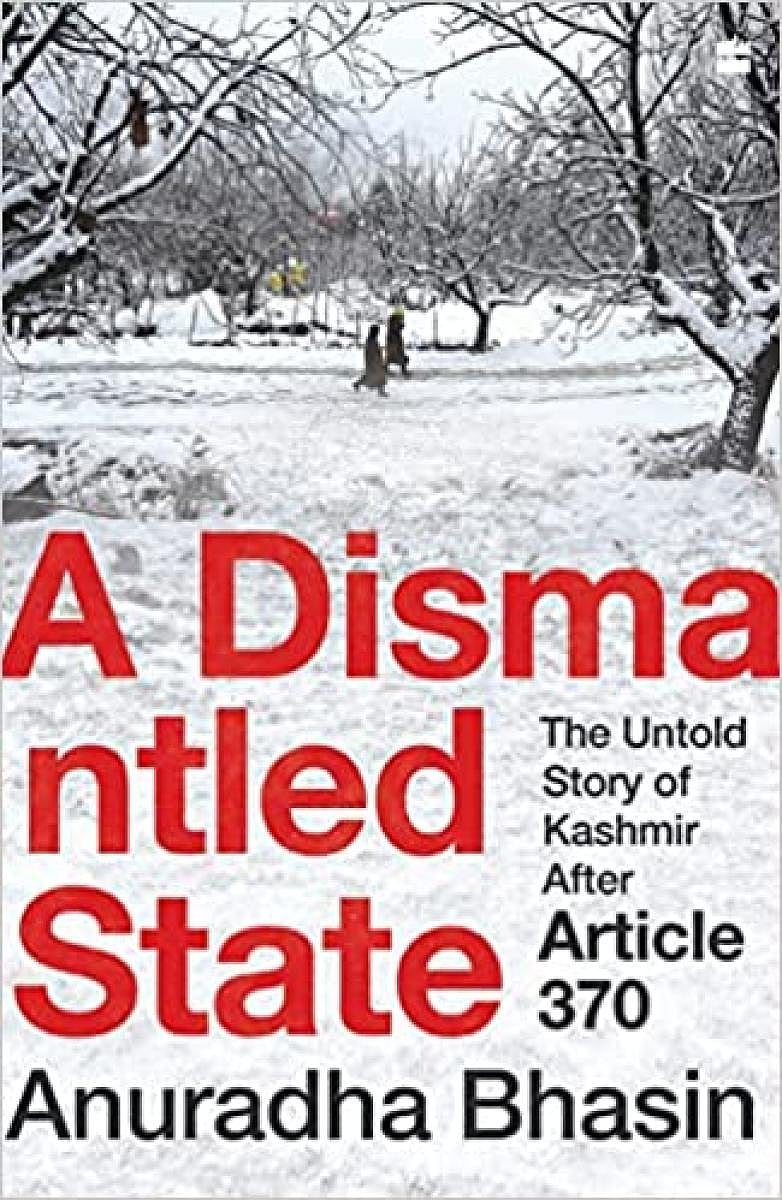
In one fell swoop on August 5, 2019, Jammu & Kashmir ceased to be a state of India. Article 370, which defined Kashmir’s accession to India, was abrogated and the state was split and degraded into two Union Territories. The unprecedented crackdown that followed inflicted colossal pain on the people. With the detention of hundreds of people, prominent political leaders under house arrest and the media under shackles, an atmosphere of fear prevailed. All means of communication including mobile phones and the internet were snapped. Roads were sealed with barbed wires and barricades forcing people to stay indoors creating a curfew-like situation. The unsaid aim seemed to be to reshape Kashmiri identity, politics, geography, economy and religion.
“Not a drop of blood was shed,” Home Minister Amit Shah proclaimed. The BJP Government treated the deafening silence as ‘acceptance’ of the changes made by New Delhi. Reports on normalcy were accompanied by lies, half-truths and propaganda. It is this ‘all is well’ narrative that A Dismantled State punctures. Authored by well-known Kashmiri journalist Anuradha Bhasin, the book is an intrepid attempt to explore what happened in the Kashmir Valley after that fateful day and how the events affected ordinary people. She pieces together exhaustive accounts of human suffering due to repressive measures.
Daring narrative
Well-researched and based on eyewitness accounts from people of diverse backgrounds, the daring narrative places the current state of a troubled land in true perspective. Bhasin compares the Valley to a military camp where people are vulnerable in their own homes. Women are at the receiving end during search operations by security forces who act with impunity. Draconian laws like J&K Public Safety Act are handy for authorities to lock up anyone without charges. Hundreds of arrested people were packed off to faraway jails in UP without notifying the next of kin. The plight of people looking for missing sons and their struggle to raise money to travel to distant jails is harrowing to read. Truths about many such incidents lie buried, writes the author.
No exact statistics about detention have been made public. Those released after several months say they were denied a change of cloth, life-saving medicines or healthcare for a month. “Arrests and detentions were a way to impose collective punishment on an entire population triggering massive fear in the name of fighting terror,” argues Bhasin. A fact-finding team found two cases of six-year-old boys being detained. Torture and psychological terror were effectively used as an instrument of control. The author has found fear all-pervasive and people reluctant to talk even after the easing of restrictions. A week after the announcement of the nationwide Covid lockdown, the Centre scrapped or altered 96 J&K laws.
A Dismantled State disputes the official claim that people of Hindu majority Jammu are happy with the changes. Widespread resentment against new domicile clauses cuts across regions. Locals fear that new land laws could deprive them of their lands, businesses and assets. They dread the likely demographic change most. Modi and Shah had claimed that the repeal of Article 370 would end the era of suffering for the people of Kashmir and usher in a new dawn of democracy, equality, peace and development. But the reality appears to be vastly different.
Maze of half-truths
To blunt international criticism, the BJP government invited a select group of right-wing European MPs to Kashmir on a chaperoned tour even as Indian MPs and civil rights activists were denied entry. Subsequent US Congressional hearings and criticism by Angela Merkel were embarrassing.
Despite adopting an all-out military strategy of repression and subjugation, the Hindutva project in Kashmir shows no sign of success in the fourth year.
The alienation of Kashmiris is complete. More and more youth are taking up guns and militants are striking at will. Bhasin claims the new wave of insurgency is mostly home-grown, a reaction to the excessive militarisation and the disproportionately brutal response of the state. The counter-insurgency war in Kashmir has been dirty. Extra-judicial killings, lack of accountability, hidden budgetary funds, greed and corruption compound the situation.
The book is unsparing in its attack on mainstream Indian media for keeping quiet on the suppression of civil liberties in Kashmir.
The judiciary too failed in protecting human rights, the author claims. Kashmiri people, constantly vilified by the electronic media and the army of trolls on social media, find few sympathisers. Bhasin sums up: “Today, Kashmir finds itself not only sapped of hope but also stands at the cusp of doom.’’
A Dismantled State is an unbiased narrative on the sordid happenings in Kashmir, which were hidden from public view. The author has succeeded in sifting facts from a maze of half-truths and rumours and has provided invaluable insights into Kashmir from the inside.